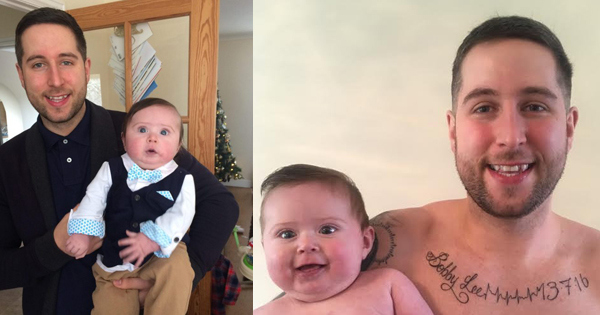Advertisement
Richard Davies, 29 years old, and his wife, Natasha, 30 years old, found out that their son Bobby already had a heart defect after Natasha reached five weeks in her pregnancy. When Bobby was born, doctors discovered that he only had half of a heart, SWNS reports.
Bobby was diagnosed with Tricuspid Atresia, Hypoplastic Right Heart Syndrome, and a Ventricular Septal Defect. Doctors provided Natasha with three options regarding her son: to give him sufficient comfort care, to just let him live for as long as he could, or to undergo surgery as soon as he gets born.

Natasha said, “Our world came crashing down around us. Neither of us had any knowledge of congenital heart defects and didn’t know what this would mean for our baby.
“We were given three options; surgery when he was born, supportive comfort care meaning we would let him be born with no intervention and allow him to live for as long as he could or a termination.
“As you can imagine at 22 weeks of gestation, I was inconsolable. But my husband and I both knew straight away that we would fight for our baby. No matter what. So, we did. I had frequent scans and was monitored closely through the rest of my pregnancy.”
Fortunately, when Natasha gave birth to Bobby at St. Michael’s Hospital in Bristol, he weighed enough and was able to breathe on his own enough to not have the surgery right away. When he turned three months old, Bobby underwent a surgery that involved a Bi-directional Cavo Pulmonary Shunt.

Bobby now has a huge vertical line of scar on his chest. Richard decided to spend two hours and $250 to get a tattoo that’s similar to his son’s scar as a sign of solidarity. Bobby will need to have more surgeries in coordination to his heart growth.
Natasha said, “The one person we couldn’t have got through this however, is my amazing husband Richard. His unwavering support has been like no other and Bobby and I are lucky to have him. His tattoo of Bobby’s scar will remind him forever that he isn’t alone, and we will be there for him all the way.
“We want to spread awareness of this as congenital heart diseases are more common than you might expect. We want to help as many families as possible face the ongoing heartache and uncertain futures that having a child with only half a heart can face.”




